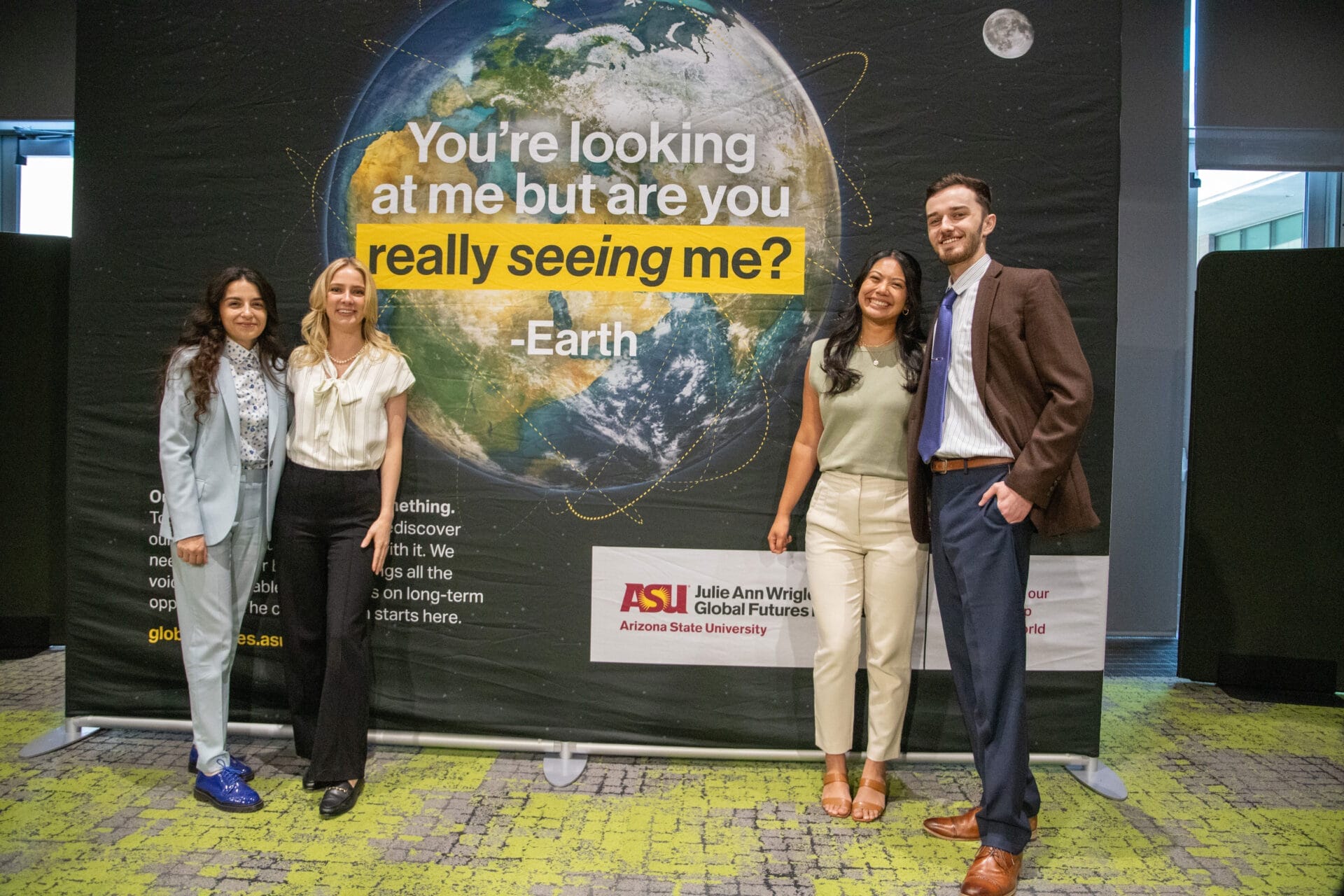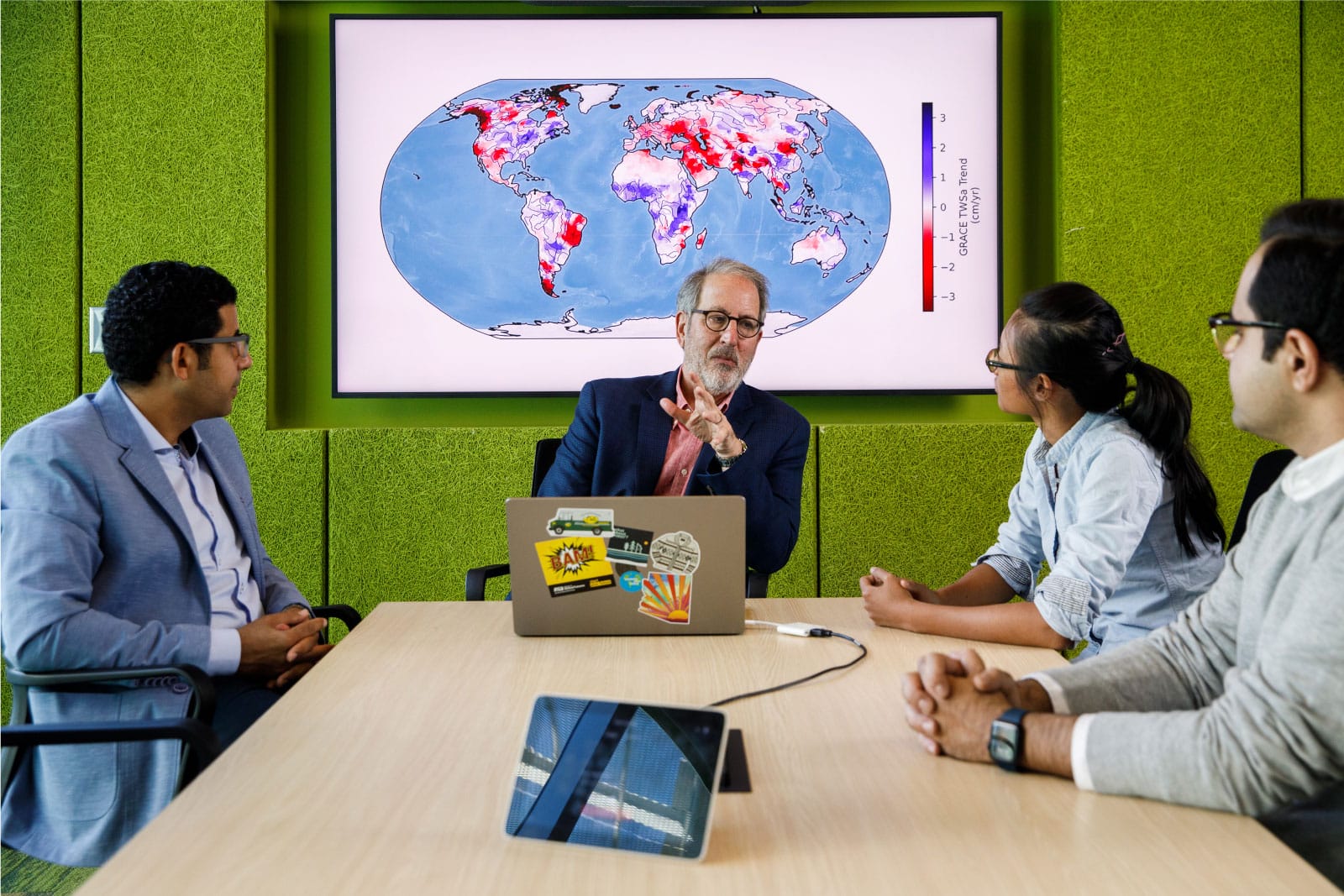“Connecting the classroom and real-world organizations to design leading edge sustainable solutions”
Master of sustainability students + world-class faculty + your organization = win/win relationship for sustainability outcomes

ASU sustainability students tackle hotel food waste
Graduating Master of Sustainability Solutions students from the School of Sustainability showcased their innovative solutions for real-world sustainability challenges at the capstone project presentation held at the Walton Center for Planetary Health this spring. This project partnered with Fairmont Scottsdale Princess Hotel, represented by ASU alumnus Michael Ortiz.
What are the School of Sustainability capstone projects?
Capstone projects are a critical part of the School of Sustainability’s applied graduate degrees. These projects pair organizations with teams of graduate students, under the guidance of ASU faculty, to solve sustainability challenges. Sponsor organizations benefit by having dynamic, skilled and professional graduate students conduct substantial research and develop customized solutions. Students gain applied experience which prepares them for success in their careers and signals their value to employers.
Teams are composed of approximately four students each. These teams collaborate directly with their project sponsor while working through a course structure led by ASU sustainability faculty. The course and project flow usually include these elements:
- Competitive Landscape Analysis
- Assessing Best Practices
- Stakeholder Mapping
- SWOT Analysis
- Tailoring recommendations and implementation plans to the sponsor organization
What kind of organizations can participate in the program and benefit from a sustainability team?
The capstone program strives for a balance of partners representing local and multinational businesses, governments and government agencies, non-profit organizations and educational institutions.
What type of projects does the program take on?
- Sustainability Strategy
- Sustainability Innovation
- Environmental, Social and Governance (ESG) Assessment
- Urban Agriculture
- Circular Economy
- Water
- Sustainable Purchasing
- Assessing Material Impacts
- Waste Reduction, Reuse and Recycling
- Sustainable Investing and Finance
- Supply Chain Sustainability, Equity and Risk
- Energy Efficiency
There are three project windows during the year
Active dates for capstone courses are outlined in the table below. The project inventory for each class is finalized two months before the session’s start date.
| Spring | Summer | Fall |
|---|---|---|
| 13 weeks | Jan – Apr | 7 weeks | May – July | 7 weeks | Oct – Nov |
| MSUS students | MSL students | MSL students |
| Local to Tempe | Virtual | Virtual |

Program details
Capstone projects are the culminating experience in the Master of Sustainability Leadership (MSL) and the Master of Sustainability Solutions (MSUS) degree programs. Projects do not require any financial investment by the sponsor.
The MSL degree is fully online and focused on professionals who are often leaders in their own organizations. The focus is on organizational leadership and change management through the lens of sustainability.
The MSUS degree is full-time, in-person on the Tempe campus. Students master sustainability theory and methods and learn how to develop and apply practical solutions to sustainability problems. They are prepared to work in a variety of fields.
More Information
Download samples of the project description forms for the MSUS 13-week program and the MSL 7-week program.
Contact program manager Charles Reeves at [email protected] for more information on how to get involved with the capstone projects program.
Past partners
Cities of Phoenix, Scottsdale, Tempe, Gilbert, Peoria, and Mesa; Colgate Palmolive; Unlimited Potential; Leukemia and Lymphoma Society; Birla Carbon; Fairmont Princess Hotel Scottsdale; Carbon Disclosure Project; BWD Strategic; and UNIQA Insurance (Czech Republic and Slovakia)
Projects:
- 1-5 selected final products from projects. “Curated” projects that can be seen by the public.
- Mini case studies of projects. 2 sentences to 2 paragraphs.
